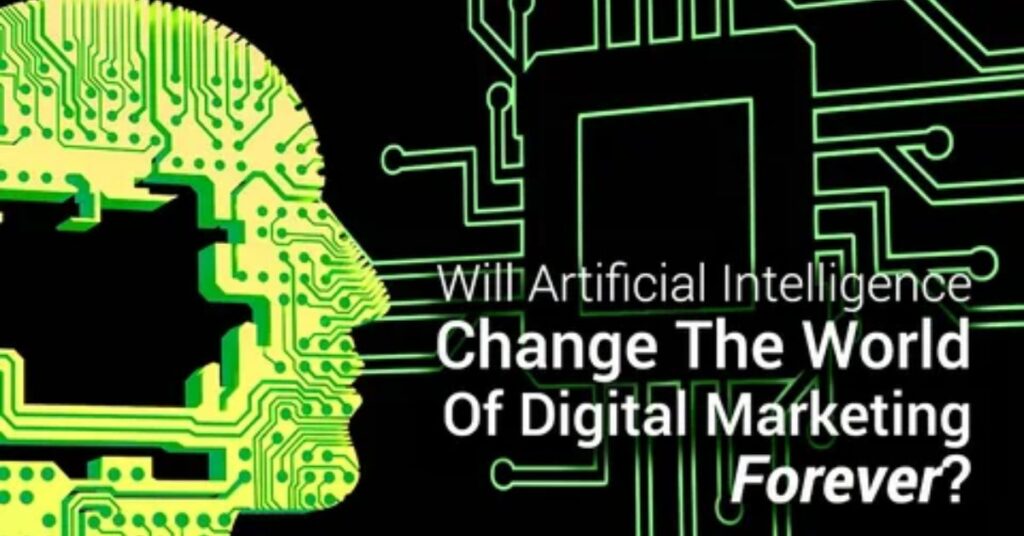We’ve officially stepped into an era where machines are not just tools—they’re thinkers. The future of AI: how artificial intelligence will change the world is no longer a prediction; it’s a present reality. From smart homes that know your routine to self-driving cars navigating American highways, AI has become a silent partner in everyday life. Artificial Intelligence, once an abstract concept confined to research labs, is now shaping every major industry in the United States. In the coming decade, AI will continue to evolve from simple automation to systems capable of learning, adapting, and reasoning just like humans. The U.S. is currently leading global AI innovation with heavy investments in automation, robotics, and deep learning models that power both business and social progress.
The significance of entering this new AI-driven world lies in how it changes human capability. It’s not about replacing people but about enhancing what we can achieve. As we stand at the crossroads of opportunity and responsibility, understanding how AI is influencing business, climate, innovation, and ethics becomes vital. The next chapters explore these transformations in detail, showing how artificial intelligence will change the world across every domain imaginable.
AI-Powered Business Automation and Smart Workflows
The impact of artificial intelligence on business automation is undeniable. Across the U.S., companies are rapidly embracing AI-powered smart workflows that simplify complex processes, cut costs, and boost productivity. Imagine a customer service center where virtual assistants handle 70% of incoming calls or a logistics firm using predictive algorithms to plan deliveries before orders even arrive. That’s the reality of AI-driven automation today. By integrating intelligent systems into business operations, organizations can make faster, data-backed decisions and achieve operational excellence that traditional systems could never deliver.
The transformation extends beyond cost-cutting—it’s reshaping work culture itself. In the United States, major corporations like Amazon, IBM, and Tesla use AI tools to predict market trends, optimize production lines, and enhance customer experiences. A recent study by McKinsey showed that 66% of American businesses are already using AI in at least one operational area, from HR recruitment to inventory management. Smart workflows allow employees to focus on creativity and innovation while AI handles repetitive tasks with precision. For instance, data-driven marketing powered by AI now helps brands personalize campaigns for millions of users in real time. The shift from traditional business workflows to AI-powered systems marks the start of a smarter, faster, and more efficient economy.
| Traditional Workflows | AI Smart Workflows |
| Manual task management | Automated process optimization |
| Reactive decision-making | Predictive analytics and real-time insights |
| Human errors | High accuracy and consistency |
| Time-consuming reporting | Instant data visualization |
| Limited scalability | Scalable intelligent solutions |
Artificial Intelligence and Climate Change Solutions
The battle against climate change is one of humanity’s biggest challenges, and artificial intelligence is proving to be a powerful ally. In the United States, AI-powered climate solutions are being used to monitor air quality, predict wildfires, and manage energy efficiency in cities. Machine learning models analyze billions of environmental data points to forecast changes in weather patterns, helping policymakers and scientists take timely action. By combining AI with satellite imagery, researchers can detect deforestation, track glacier melting, and measure ocean temperatures with unprecedented accuracy.
One notable example is Microsoft’s AI for Earth initiative, which uses artificial intelligence to build predictive tools for sustainable agriculture, water conservation, and biodiversity protection. Similarly, Google’s DeepMind AI is being used to reduce energy consumption in data centers by 40%. In the U.S., cities like San Francisco and Boston have already adopted smart energy systems that adjust power usage based on AI-driven demand forecasts. By 2030, it’s expected that AI could help reduce global greenhouse gas emissions by 4%, equivalent to eliminating emissions from Australia, Canada, and Japan combined. Clearly, when it comes to climate change solutions, AI is doing more than analyzing data—it’s helping us build a sustainable future.
The Acceleration of Innovation Through AI Technologies
Artificial intelligence has become the ultimate accelerator of innovation. It fuels creativity, shortens research timelines, and transforms raw ideas into tangible realities faster than ever before. In the U.S., AI is at the core of groundbreaking advancements in healthcare, space exploration, and digital art. Scientists use AI-driven simulations to design new drugs and predict patient outcomes, while engineers at NASA rely on machine learning to navigate autonomous spacecraft. Generative AI models such as ChatGPT, Midjourney, and Claude are redefining how content, designs, and even music are created. This new wave of innovation isn’t just about speed—it’s about possibility.
AI technologies like quantum computing and neural networks are changing how discoveries happen. For example, American pharmaceutical companies use AI to screen millions of molecular compounds within hours, reducing the time needed for new medicine development by years. In creative fields, AI-generated imagery and storytelling tools are allowing artists to visualize concepts once limited by imagination. The U.S. has become a global innovation hub because of its ability to merge artificial intelligence with human intelligence, forming a partnership that drives limitless growth. The acceleration of innovation through AI technologies is not just an industrial revolution—it’s a creative one too.
| Top Emerging AI Technologies to Watch (2025–2030) | Applications |
| Generative AI | Art, content creation, advertising |
| Quantum AI | Computing, data encryption |
| Predictive AI | Business analytics, finance |
| Robotic Process Automation | Manufacturing, logistics |
| Edge AI | Smart devices, IoT applications |
Key Industries Transformed by Artificial Intelligence
Artificial Intelligence is reshaping nearly every major industry in the United States. In healthcare, AI assists in diagnosing diseases, analyzing X-rays, and predicting potential health risks before they become serious. Hospitals now use machine learning algorithms to improve patient care and reduce wait times. In education, AI tutors offer personalized learning experiences that adapt to each student’s pace and style. American universities are also using AI tools to enhance online learning and improve administrative efficiency.
The finance sector has seen a massive transformation too. Banks now use AI for fraud detection, risk management, and real-time investment advice. In the transportation industry, autonomous vehicles are revolutionizing how Americans travel and move goods. From Uber’s self-driving technology to Tesla’s autopilot systems, the roads of the future are being built on AI innovation. Retailers are not far behind—AI helps them manage stock, personalize product recommendations, and even predict consumer demand during holidays.
| Industry | AI Applications | Adoption Rate (U.S. 2025–2030 Projection) |
| Healthcare | Diagnostics, robotic surgery, data analytics | 85% |
| Education | AI tutors, adaptive learning, virtual classrooms | 70% |
| Finance | Fraud detection, trading algorithms | 90% |
| Transportation | Autonomous vehicles, route optimization | 80% |
| Retail | Personalized shopping, inventory automation | 75% |
As AI continues to integrate into these sectors, the American workforce is evolving too. The demand for AI specialists, data scientists, and machine learning engineers is increasing rapidly, proving that this transformation isn’t just technological—it’s also deeply human.
Risks and Ethical Dangers of Advanced AI Systems
While the future of AI promises innovation and prosperity, it also comes with real risks and ethical challenges. The same algorithms that power intelligent systems can be misused for manipulation, bias, and surveillance. In the United States, debates about data privacy, algorithmic fairness, and job displacement are growing louder. One of the greatest concerns is the rise of deepfakes—AI-generated videos that can spread misinformation and damage reputations. As AI systems become more autonomous, the question of accountability becomes critical: who is responsible when an AI system makes a wrong decision?
The U.S. government and global organizations are working to create laws and guidelines that ensure AI remains safe and transparent. Ethical frameworks like “AI Bill of Rights” and initiatives from UNESCO emphasize fairness, privacy, and accountability. According to AI ethicist Timnit Gebru, “AI doesn’t need to be feared—it needs to be understood and governed.” To build a trustworthy future, developers must adopt responsible AI practices, including human-in-the-loop oversight, unbiased data usage, and continuous monitoring. The goal is not to stop AI advancement but to make sure it aligns with human values and social good.
Conclusion: Building a Responsible and Smarter AI Future
The future of AI: how artificial intelligence will change the world depends on how responsibly we build it. Artificial intelligence is already transforming industries, solving environmental challenges, and unlocking human creativity at an unprecedented scale. Yet, the road ahead requires thoughtful regulation and ethical awareness. The U.S. stands at the forefront of this transformation, guiding global standards for AI innovation and responsibility. Collaboration between governments, corporations, and educators will be key to shaping a balanced and inclusive AI future. By fostering transparency, accountability, and education, society can ensure that AI remains a force for progress rather than disruption.
May Also Read: Mobile Technologies – Definition Types Uses Advantages
Conclusion
Artificial intelligence has already begun rewriting the story of human achievement. Its potential to change the world is limitless—but only if guided with wisdom and care. The truth is, Artificial Intelligence will change the world in ways we are only beginning to understand, reshaping how we work, communicate, and solve global challenges. The future of AI is not about machines replacing humans; it’s about empowering us to reach new heights together. The world is ready for a smarter, more responsible era—and the United States is leading the way into it.

Jake Miller is a mobile troubleshooting specialist with 7+ years of experience solving Android and app-related issues. He tests every fix on real devices to ensure accuracy and reliability. Jake creates simple, step-by-step guides to help users quickly resolve everyday smartphone problems.



